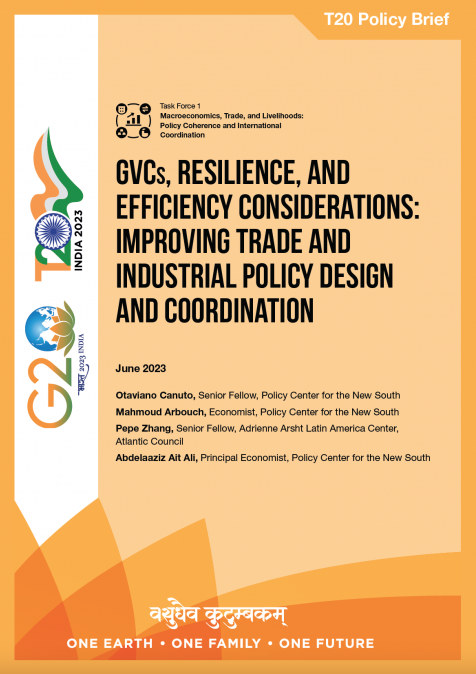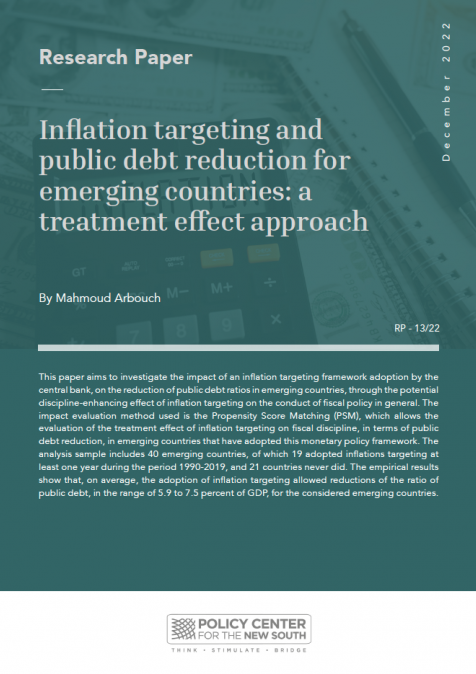Podcasts
Presentation of the Research Paper: MOROCCO-BRAZIL ECONOMIC RELATIONS: Current situation and strategies for a deeper relationship
Related topics:
This podcast, performed by Sandra Polónia Rios (Director, CINDES), presents the outputs of the recent Research Paper produced in the framework of the Policy Center for the New South partnership, on the current economic situation and strategies for a deeper relationship between Morocco and Brazil. The research paper aims to provide technical elements to support a revision of the current state of the art and to devise a strategy to improve and to deepen the bilateral economic relations. Departing from the current situation, this research paper presents a roadmap to improve and to deepen the bilateral economic relations, with a focus on the negotiations of trade and investment agreements.










